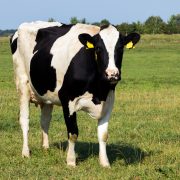Challenges for the management of Johne’s disease in the UK: Expectation management, space, ‘free riding’, and vet-farmer communication
Challenges for the management of Johne’s disease in the UK: Expectation management, space, ‘free riding’, and vet-farmer communication

Open access
In our edition of: Oct 2024
In our categories of: farm animals
our summary:
Morrison, R. et al. (2024) Challenges for the management of Johne’s disease in the UK: Expectation management, space, ‘free riding’, and vet-farmer communication. Preventive Veterinary Medicine, 231, 106295.
The aim of this study was to better understand the challenges dairy farmers and veterinary surgeons in the UK face in the on-farm management of Johne’s disease (JD) with the intention of identifying possible solutions.
Data was collected from 418 farmers and 154 veterinary surgeons via 22 workshops, which included both farmers and vets, and 28 in-depth semi-structured online interviews (15 farmers, 13 veterinary professionals) between October 2022-April 2023. Prior to the workshops, farmers and veterinary practices submitted their JD data, from which a tracker report was produced for each farmer showing their JD test results from previous years, this was provided to them before the workshop.
The study highlighted four main barriers that prevented farmers from implementing on-farm JD control measures: 1. Management of farmer expectations 2. Issues in finding spaces for segregation and the costs associated with control 3. ‘Free-rider’ problems which are linked to the voluntary nature of control plans and 4. Challenges of veterinary surgeon-farmer communication.
Study data indicated vet-farmer interactions around JD can be negatively affected by poor communication skills, a perceived lack of knowledge preventing veterinary surgeons proactively raising JD with farmers, and vets being seen as failing to acknowledge the competing priorities of their farmers. The importance of managing farmer expectations was highlighted as farmers were demotivated by feeling that an end-goal to JD could never be achieved, whereas the control programmes are focussed on controlling rather than eradicating the disease. The need to encourage uptake of the voluntary on-farm JD control by farmers, and of addressing concerns around ‘free-riders’ by providing education and training on the risks of buying-in JD positive animals and how they can be minimised was also emphasised.
Limitations of the study are potential selection bias of farmers thought to be less engaged in JD control as they were identified based on the high levels of JD in their herd and referrals from veterinary surgeons. The mechanism for selecting veterinary surgeons for interview was also not clear.
The study provides evidence of the importance of improving veterinary communication skills, managing farmer expectations and encouraging uptake of on-farm control of Johne’s disease in dairy cattle. Findings from the study are applicable to a wider range of endemic disease control schemes within dairy herds
The following may also be of interest:
Morrison, R. and Rose, D.C. (2023) Factors that influence dairy farmers’ decisions to implement Johne’s Disease control practices: A systematic review. Preventive Veterinary Medicine, 220, no. 106053. https://doi.org/10.1016/j.prevetmed.2023.106053
Taylor, E.N. et al. (2024) Changes in the Johne’s disease situation in GB dairy herds over 10 years, as revealed by regular milk ELISA data. Preventive Veterinary Medicine, 232, no. 106317. https://doi.org/10.1016/j.prevetmed.2024.106317
Robinson, P.A. (2020) “They’ve got to be testing and doing something about it”: Farmer and veterinarian views on drivers for Johne’s disease control in dairy herds in England. Preventive Veterinary Medicine, 182, no.105094. https://doi.org/10.1016/j.prevetmed.2020.105094
Claiming CPD for reading inFOCUS articles
Reading and reflecting on articles can count towards your CPD, and we have a template to help you with the process.
Image copyright attribute: perig76 / 123RF Stock Photo










Leave a Reply
Want to join the discussion?Feel free to contribute!